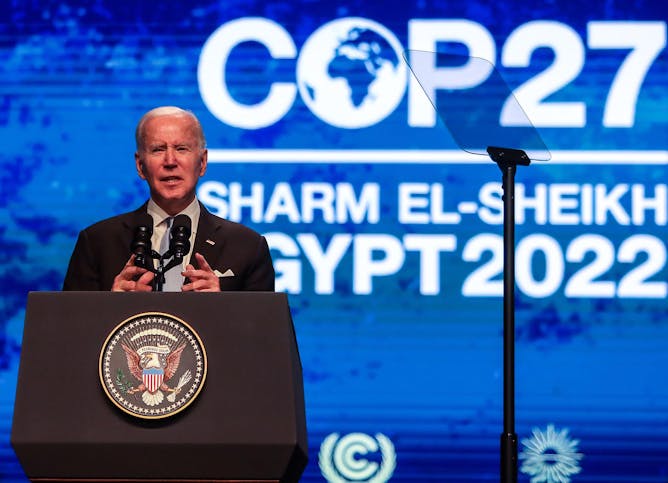|
When world leaders are meeting about climate change, it’s a safe bet that fossil fuel lobbyists will be nearby.
Over 600 lobbyists with ties to the fossil fuel industry are registered at COP27, the United Nations climate change conference in its second week in Sharm el-Sheikh, Egypt. As City University management professor Bobby Banerjee points out, that would make the fossil fuel industry the second-largest delegation at the conference, just after the United Arab Emirates, a major oil producer.
Even without the lobbyists, climate negotiators were already under intense pressure from the global energy crisis, writes Robert Brecha, professor of sustainability at the University of Dayton. The energy shortages and price spikes, triggered by Russia’s war on Ukraine, have sent countries scrambling for both renewable energy and new fossil fuel suppliers. For developing countries with fossil fuel resources and growing public needs, it’s an opportunity that can be hard to turn down, but one that comes with
high risks in a warming future.
Economist Herman Daly, who died in October, might have offered another approach for countries struggling to find resources. As environmental economist Jon Erickson explains, Daly, an architect of sustainable development, warned about “uneconomic growth” and the problems with “treating the world as if it were a business in liquidation.”
|

Bobby Banerjee, City, University of London
A look back at what the COPs have actually achieved.
|
|
|
Markets
|
-
Matthew Watson, University of Warwick
Sunak and Hunt may hope for some normality after the budget, but markets may not be so content with the details.
|
|
Consumers
|
-
Yuko Sato, Iowa State University
Hunters are warned to take precautions handling wild birds, and the virus can spill over to non-avian species, so no one should approach wild animals that appear ill.
|
|
Technology
|
-
Ganesh Viswanath-Natraj, Warwick Business School, University of Warwick
The rise of decentralised exchanges and growing regulatory pressure could strengthen crypto.
|
|
Environment
|
-
Jon D. Erickson, University of Vermont
With a square and a circle, the father of ecological economics and a founding architect of sustainable development redrew our understanding of the economy. It was revolutionary.
|
|